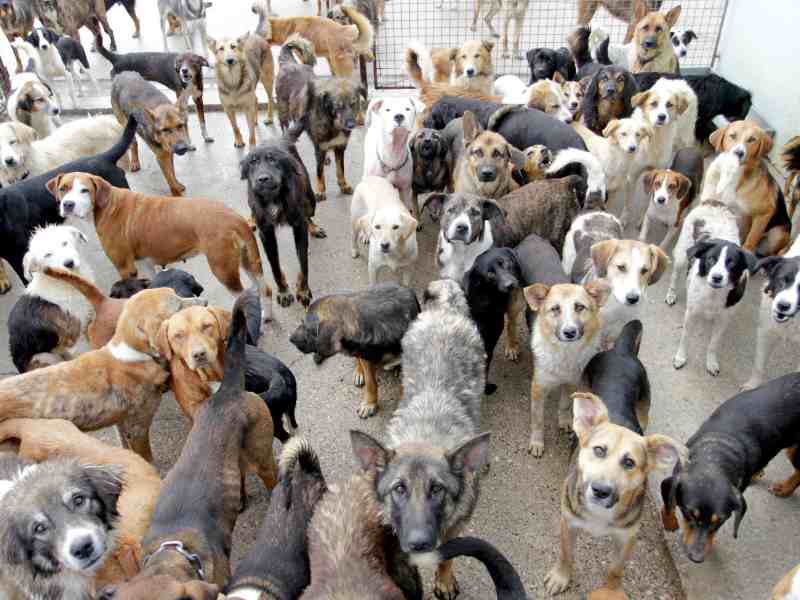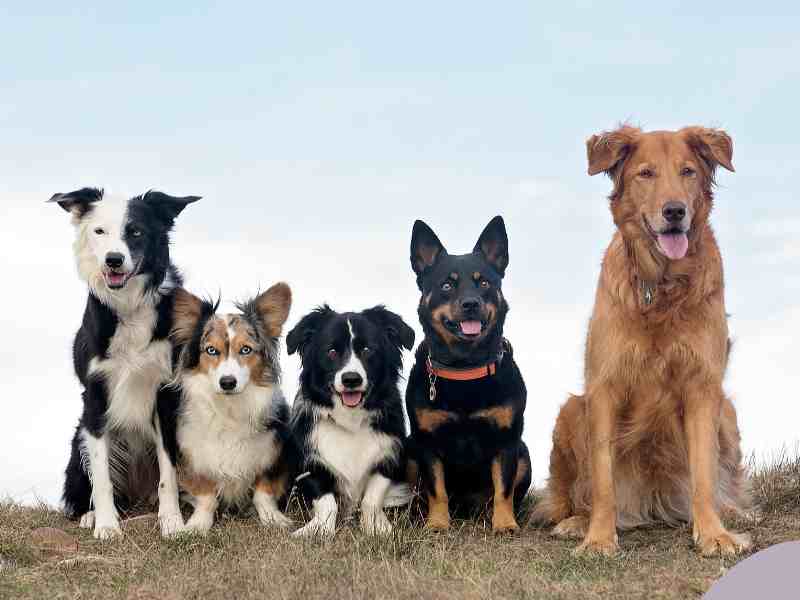Imagine a gigantic, fun-filled classroom, but instead of kids, it’s filled with over 1,000 dogs from 13 different breeds, all eager to show off their smarts. This was the scene at the University of Helsinki in Finland, where a team of researchers published findings from what might just be the most extensive study of canine intelligence to date. Their findings were shared in the prestigious journal Nature Scientific Reports.
As part of the study, researchers Saara Junttilla and her co-author Katriina Tiira looked at what they considered intelligent traits in 13 different dog breeds. They put 1002 dogs through a series of ten tests that are collectively known as smartDOG, and which was developed by Tiira. The tests looked at the various dog breeds’ impulsivity, spatial problem-solving ability, social cognition (social savviness), exploratory behavior (curiosity), logical reasoning, and short-term memory.
One test, aimed at understanding social smarts, had owners try out different gestures—from a bold point to a subtle glance—towards a bowl with a tasty treat, checking if their dog could catch on to these hints. Another test put the dogs’ logic to the test: with two bowls upside down and a treat at stake, could the dogs deduce where the treat was hidden after the human tester changed things up a bit?
The participants were a diverse crew including the brainy Border Collie, the steadfast Belgian Malinois, the cheerful English Cocker Spaniel, the loyal German Shepherd, the golden-hearted Golden Retriever, the beloved Labrador Retriever, and a mix of mixed breed champions, among others.
The team found that while all dogs proved to be clever in their own ways, not all brains think alike. No notable differences were spotted in memory or logical reasoning across breeds, but when it came to understanding social cues, holding back impulses, and solving spatial puzzles, Border Collies were the head of the class, confirming their reputation as canine Einsteins.
Labrador Retrievers, a beloved American favorite, showed they might not be at the top of their class in problem-solving or impulse control. Still, anyone who’s met a Lab knows they’re all heart, loyalty, and enthusiasm. Mixed breeds had a mixed bag of results, showing some hesitation in social and spatial tests but demonstrating great impulse control, and a knack for adapting their strategies to win those treats.
The research team believed that different breeds would showcase different strengths, but interestingly found that memory recall and logical reasoning seemed to be similar across all breeds, and didn’t exhibit the expected breed-specific patterns. This twist suggests that a dog’s training background, life experiences, and even the test environment might play more significant roles in these areas than previously thought.
Dog intelligence researchers like Stanley Coren corroborate the findings, with Coren saying in an interview with Newsweek, “According to my research, the seven dog breeds with the highest working and obedience intelligence, starting with the brightest are: Border Collie, Poodle, German Shepherd, Golden Retriever, Doberman Pinscher, Shetland Sheepdog and Labrador Retriever.”
According to the research team, while Labrador Retrievers did show some struggle with certain tests and seemingly appeared not as intelligent, the way they solved problems showed that dog intelligence can’t be decided upon based just on things like problem-solving or impulse control. It’s more about how these furry geniuses used their brains in ways that are meaningful to them and their human partners.
According to Juntiila, this study wasn’t focused solely on ranking dog smarts but on digging deeper into understanding how different breeds process the world around them. It’s a step forward in recognizing that, just like us, dogs have a variety of talents and abilities that can be nurtured and celebrated. Plus, it gives dog lovers and trainers alike a glimpse into the importance of tailoring our approach to each dog’s unique cognitive style.
It did shed some fascinating details into dog intelligence, and this research also highlights the need to further explore how training, environment, and even a dog’s daily life impact these cognitive skills.
All in all, it shows that every dog has its day, and brings us closer to appreciating the many diverse intelligence fields that these furry best friends bring to our lives.


